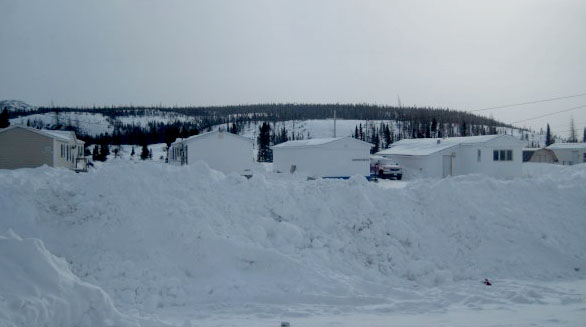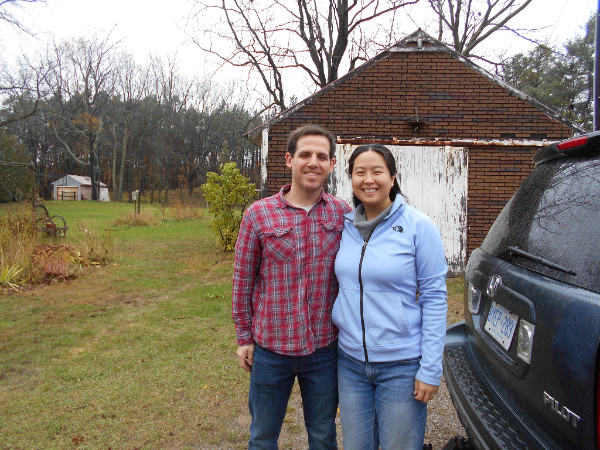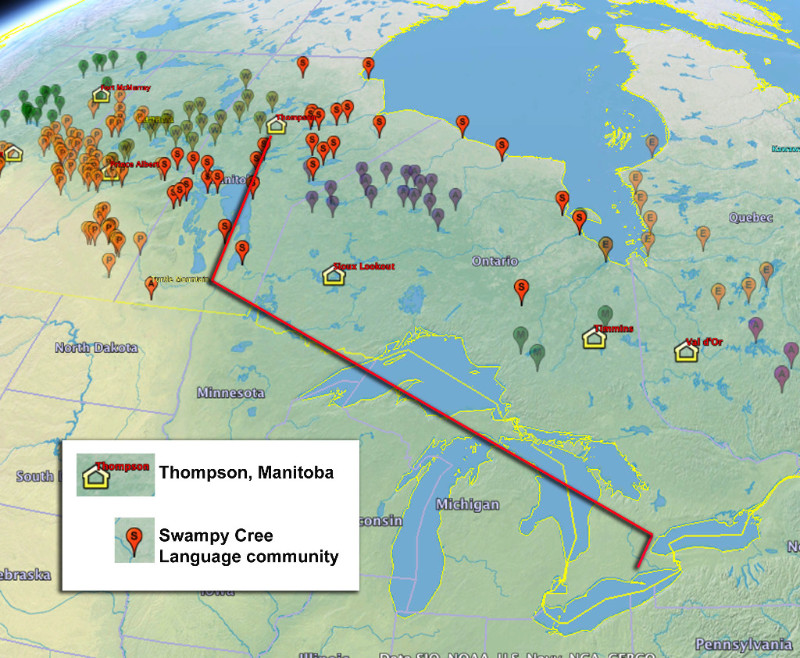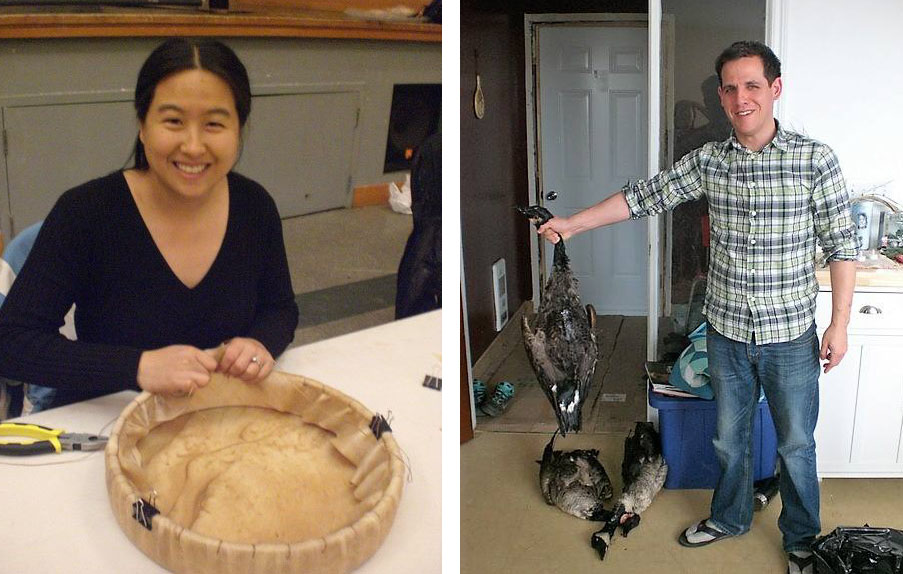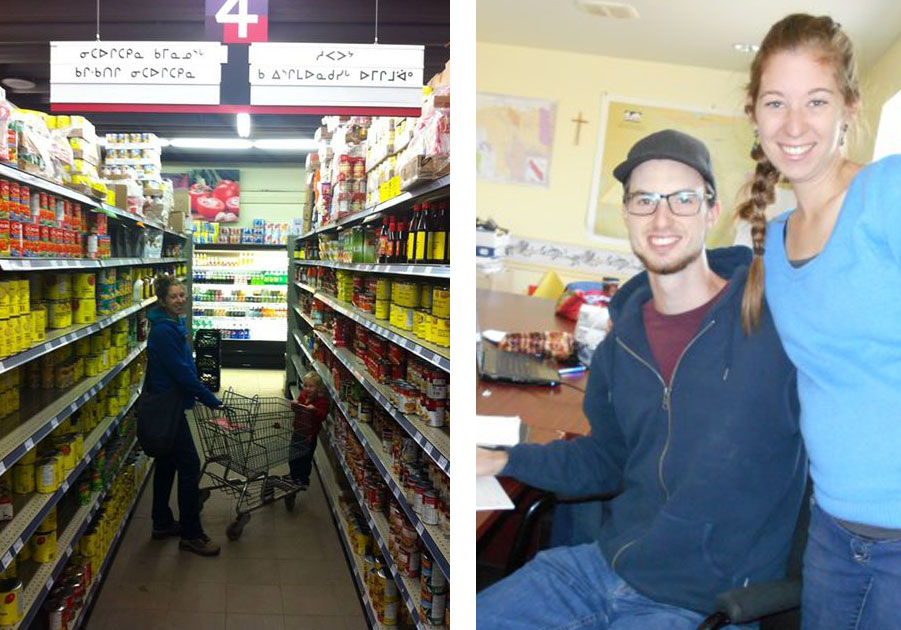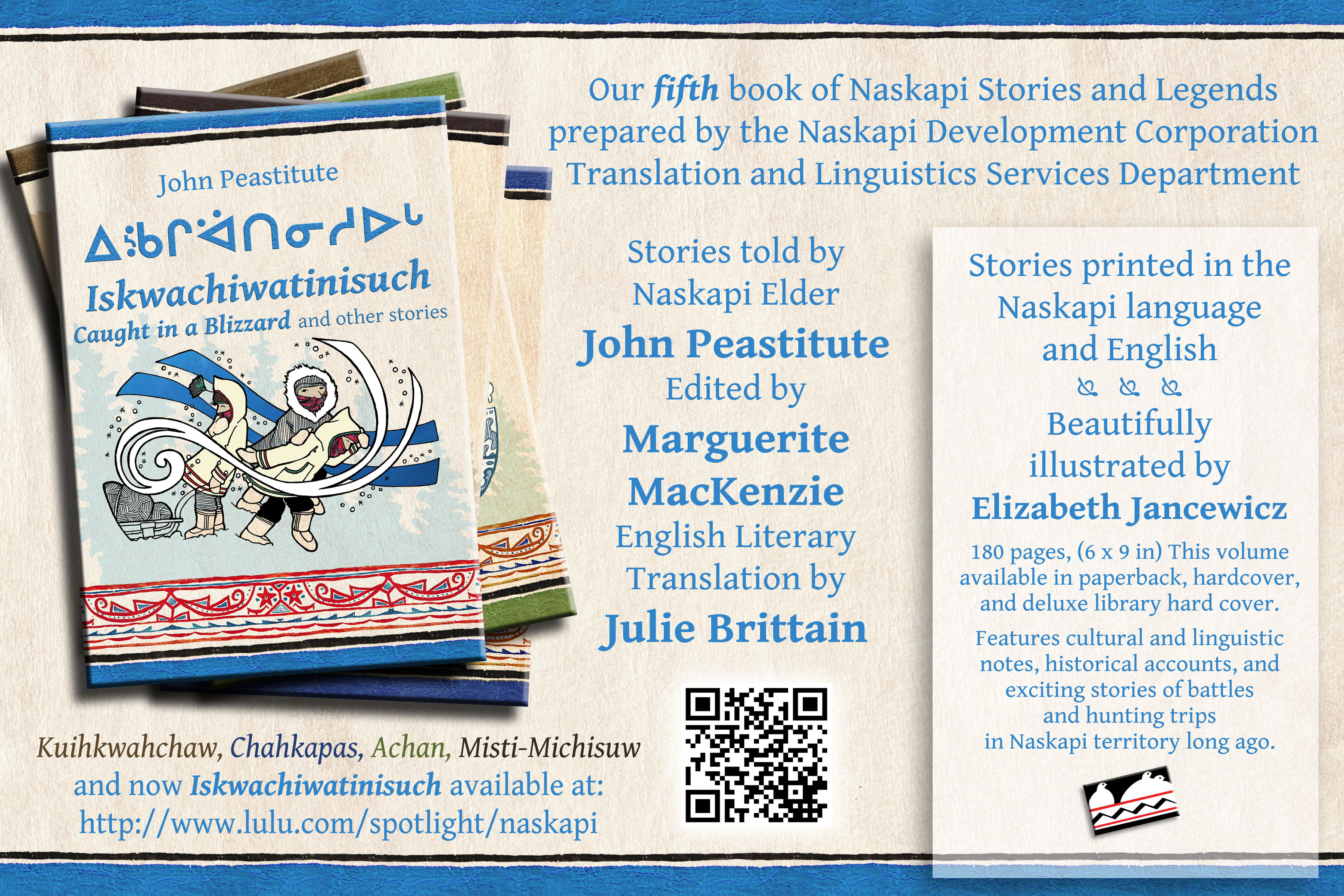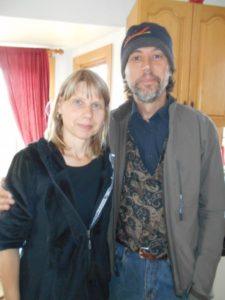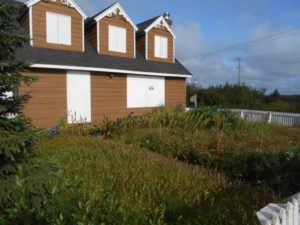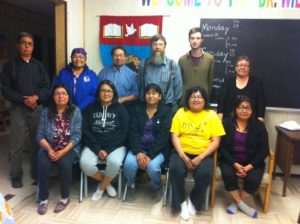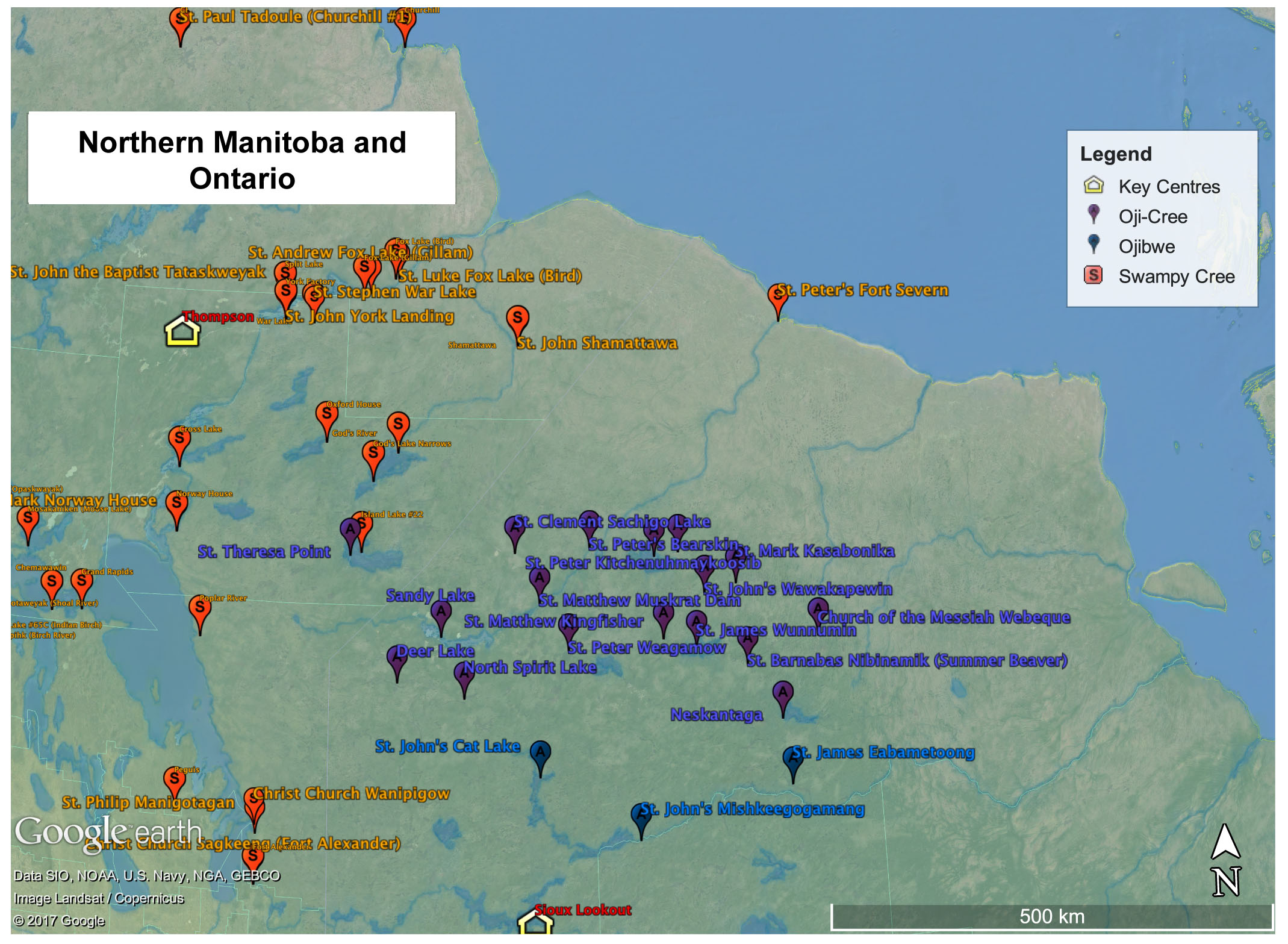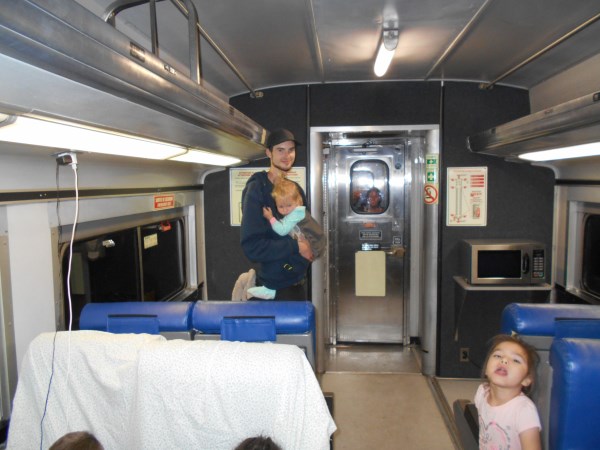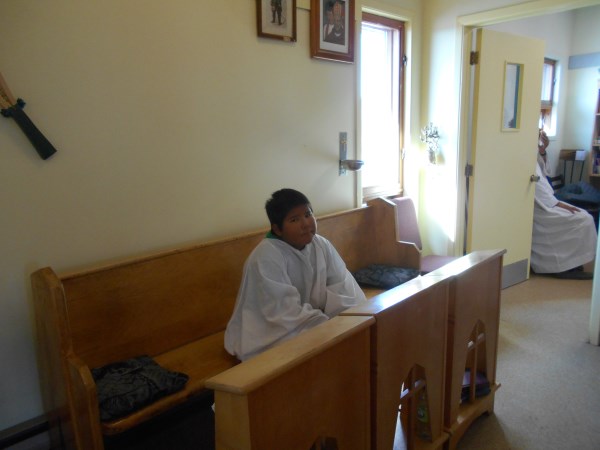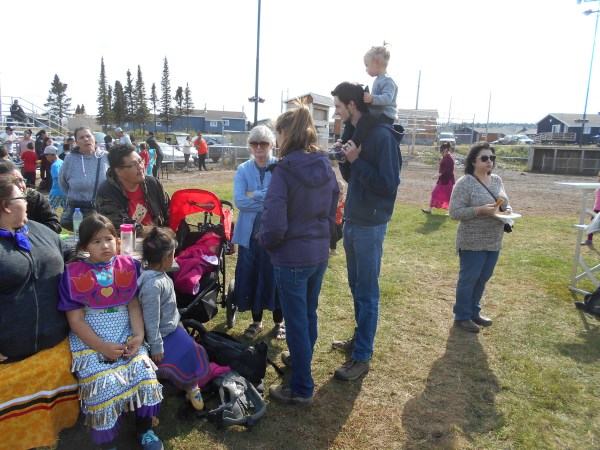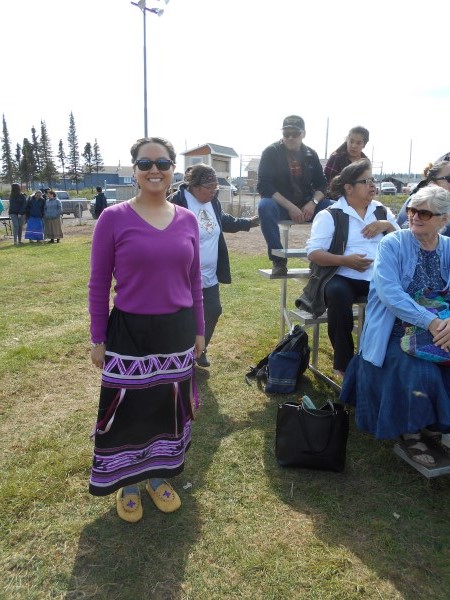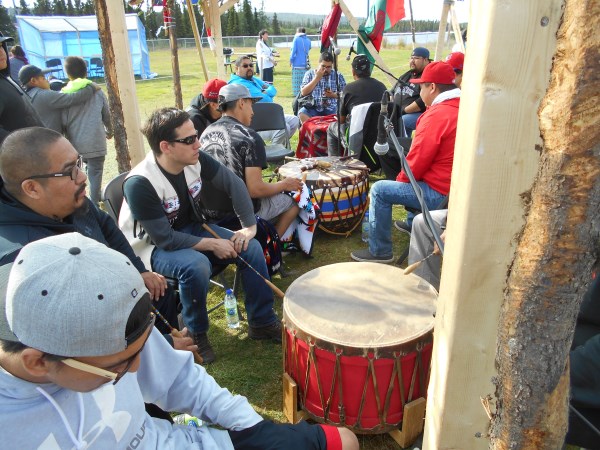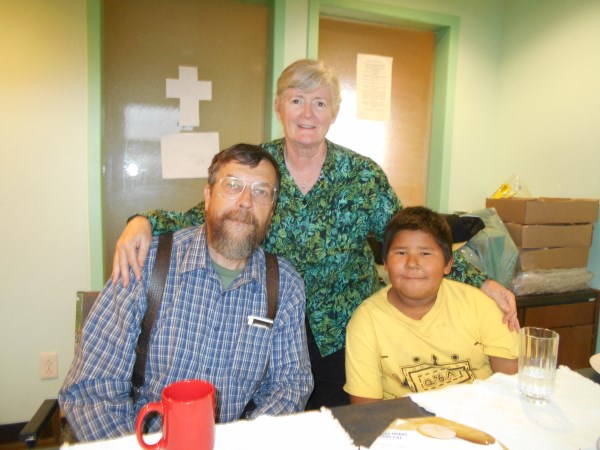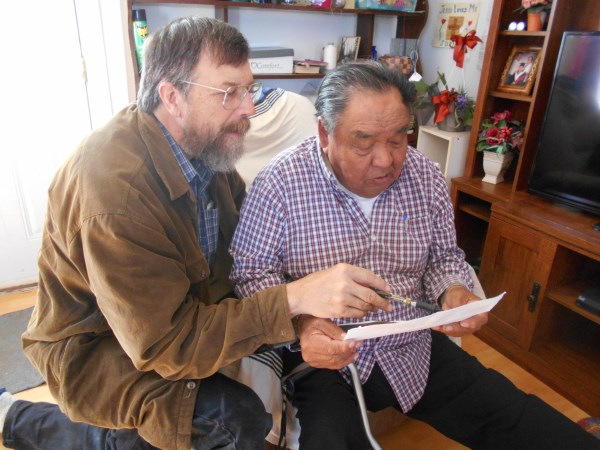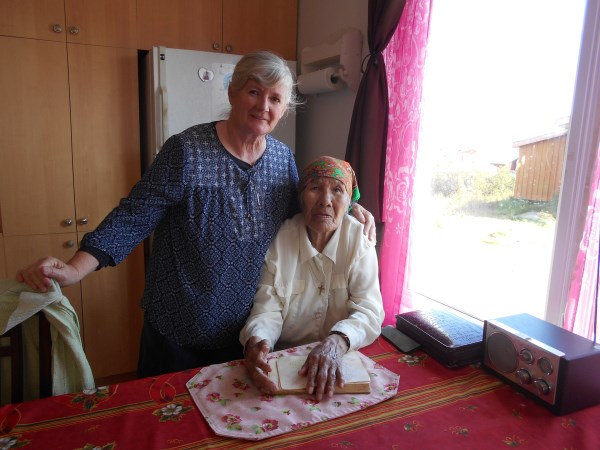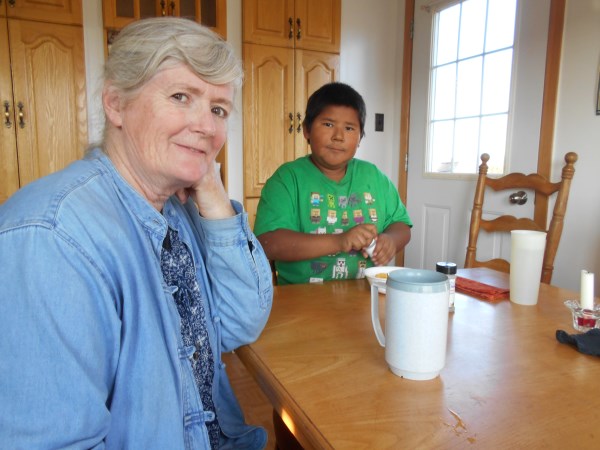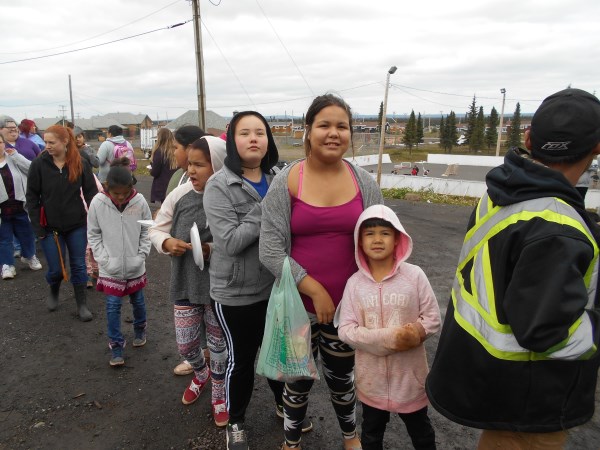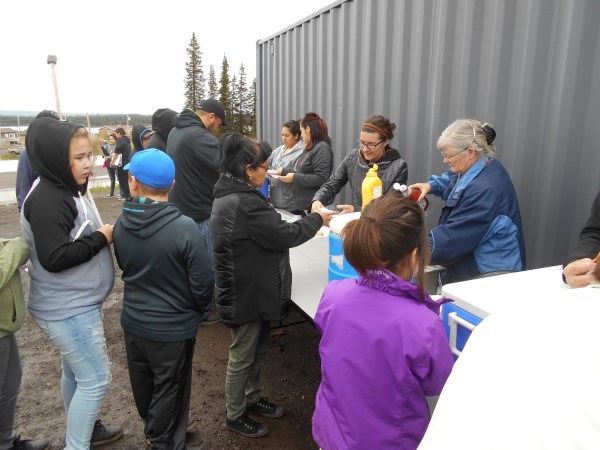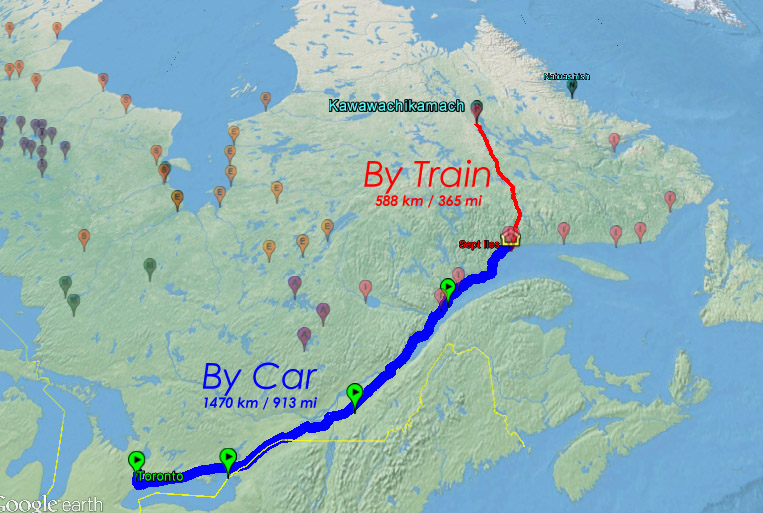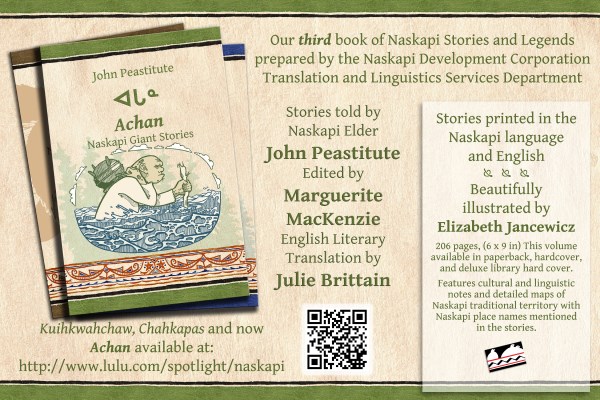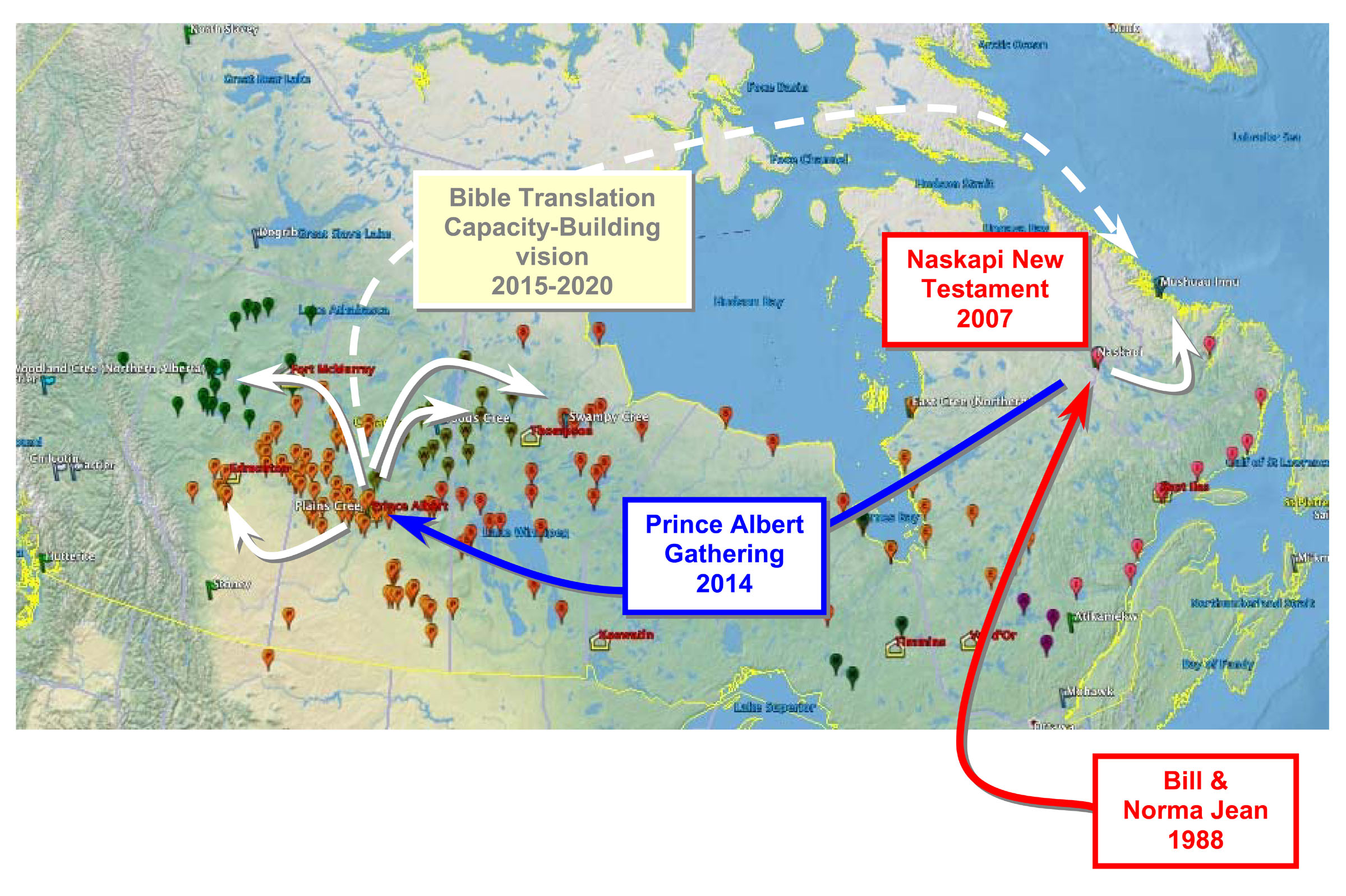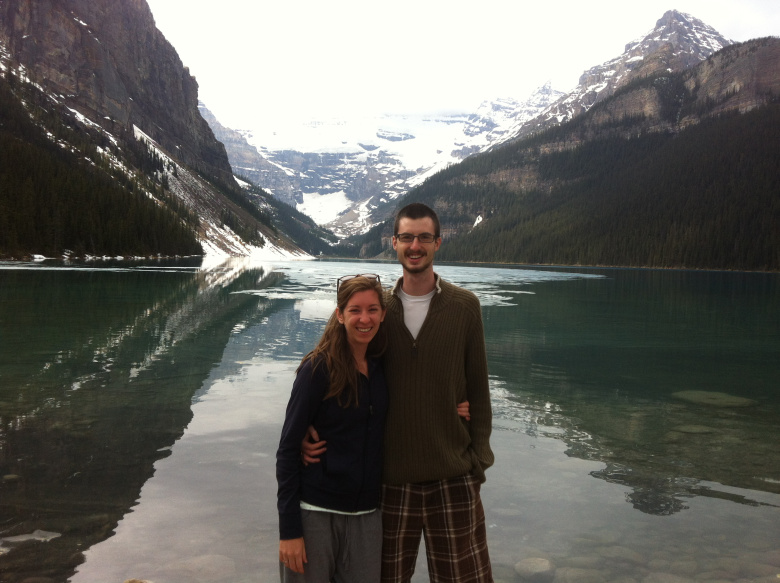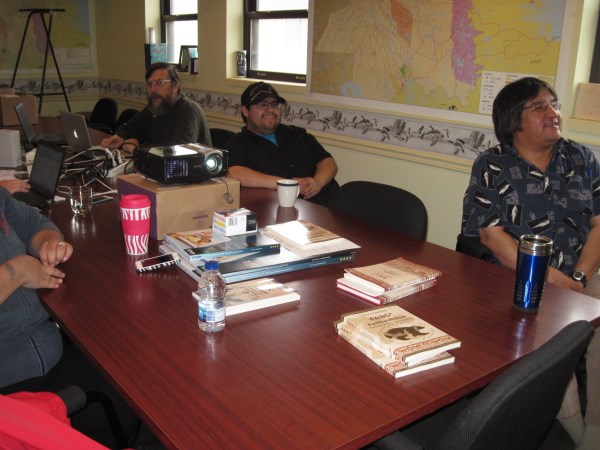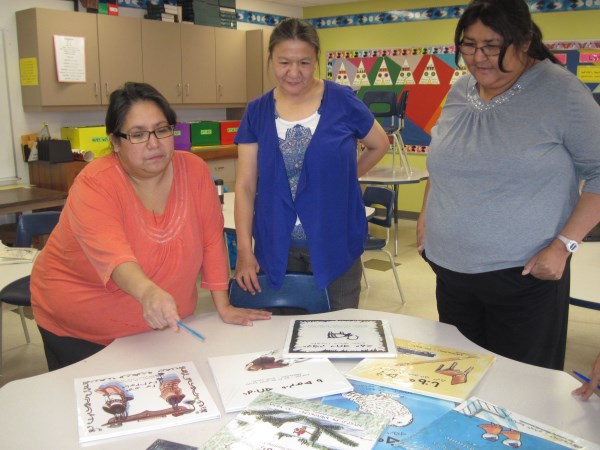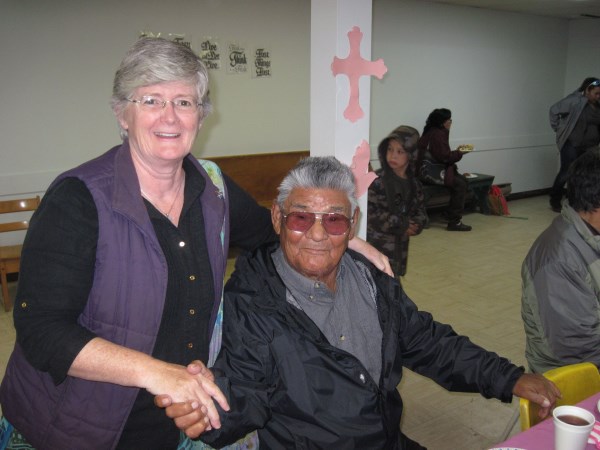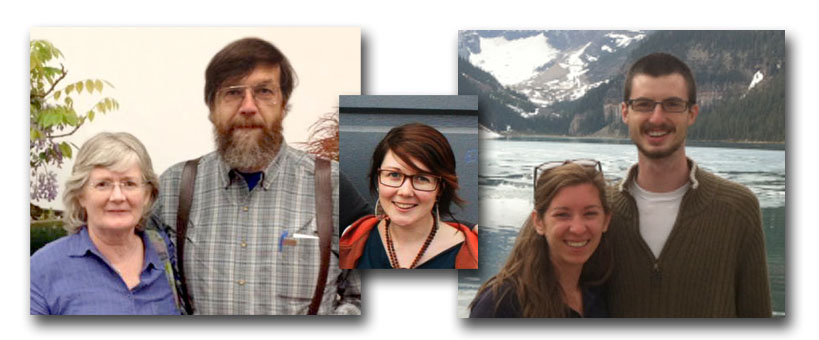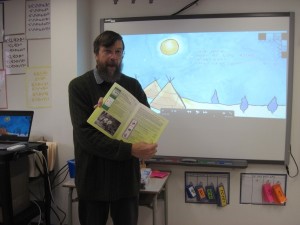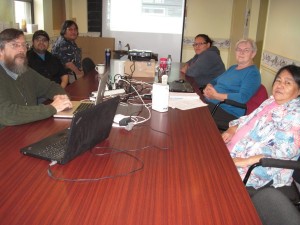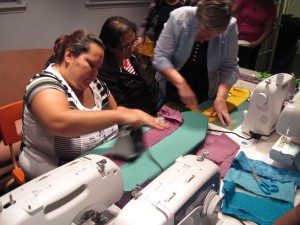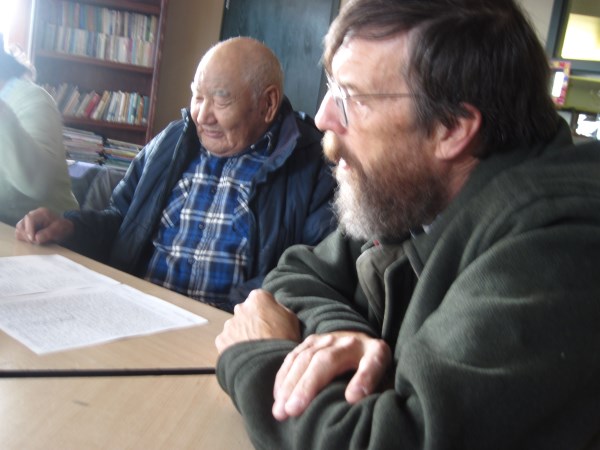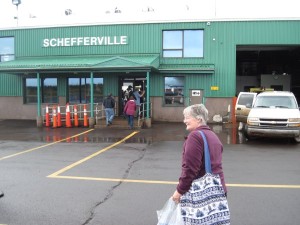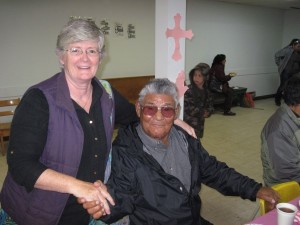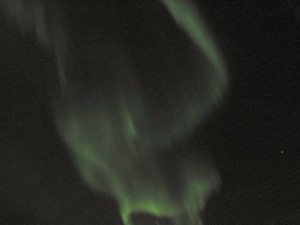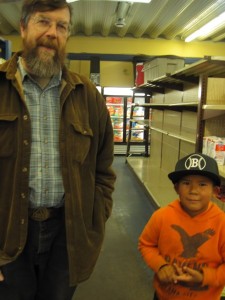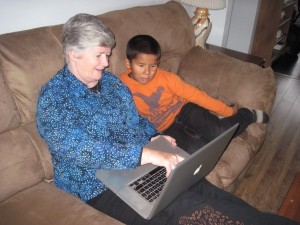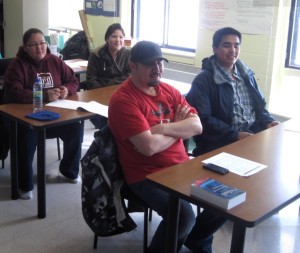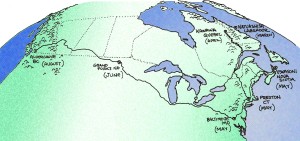Our Dear Partners,
In our previous Translation Briefs, we promised to spend some time going deeper into each of the “priorities” identified in the First Nations Bible Translation Capacity-Building Initiative.
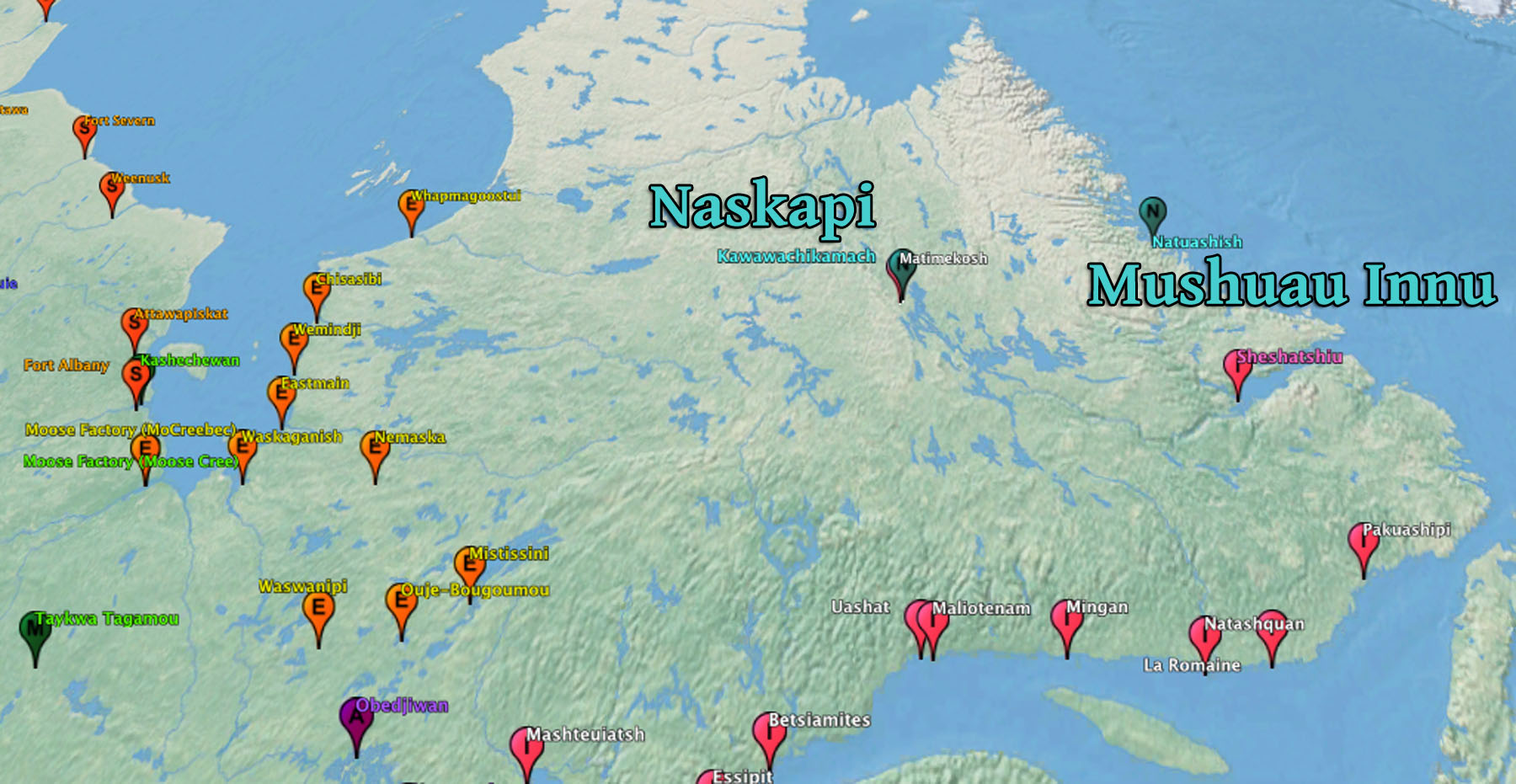 This time, we would like to tell you about the Mushuau Innu language project. The Mushuau Innu and the Naskapi people are both descended from the nomadic caribou hunters who lived in the barren ground of northern Quebec and Labrador. They call their language Mushuau Innu aimun: Mushuau means ‘barren ground’, Innu means ‘person’ and aimun means ‘word’ or ‘language’.
This time, we would like to tell you about the Mushuau Innu language project. The Mushuau Innu and the Naskapi people are both descended from the nomadic caribou hunters who lived in the barren ground of northern Quebec and Labrador. They call their language Mushuau Innu aimun: Mushuau means ‘barren ground’, Innu means ‘person’ and aimun means ‘word’ or ‘language’.
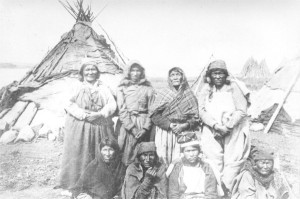 Before the beginning of the 20th century, there was no distinction between a “Naskapi” group and a “Mushuau Innu” group. Some were associated by family ties to the northern East Cree on Hudson’s Bay, and others were associated with the Montagnais (Innu) of the Gulf of St. Lawrence and central Labrador. But their nomadic lifestyle and dependence upon caribou was what made them a distinct people. Their language was related to both of these other people-groups, but had a core of features that was different from their neighbours on the coasts.
Before the beginning of the 20th century, there was no distinction between a “Naskapi” group and a “Mushuau Innu” group. Some were associated by family ties to the northern East Cree on Hudson’s Bay, and others were associated with the Montagnais (Innu) of the Gulf of St. Lawrence and central Labrador. But their nomadic lifestyle and dependence upon caribou was what made them a distinct people. Their language was related to both of these other people-groups, but had a core of features that was different from their neighbours on the coasts.
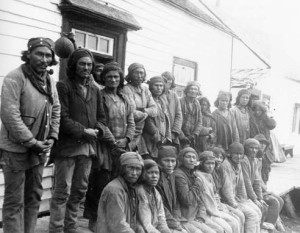 Then, around 1916, when the inland Hudson’s Bay Company post at Fort McKenzie was established, many of these hunters and their families began to center their activities around that post. About the same period, other hunters began to frequent other Hudson’s Bay Company posts, especially the Davis Inlet post on the coast of Labrador. Of course, many hunters and their families would visit either post, depending on the relative convenience of the location.
Then, around 1916, when the inland Hudson’s Bay Company post at Fort McKenzie was established, many of these hunters and their families began to center their activities around that post. About the same period, other hunters began to frequent other Hudson’s Bay Company posts, especially the Davis Inlet post on the coast of Labrador. Of course, many hunters and their families would visit either post, depending on the relative convenience of the location.
In the 1920s, during a period when caribou were not plentiful, many Innu people began spending their summers near the Davis Inlet Hudson’s Bay Company post, because of the accessibility to food and trade goods.
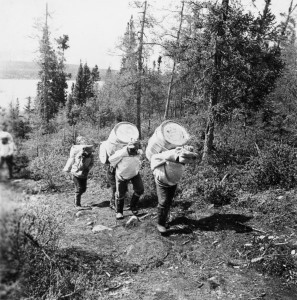 By the mid 1940s, many of the western group that later came to be known as “Naskapi”, were working for the Company hauling cargo between Fort Chimo and Fort McKenzie.
By the mid 1940s, many of the western group that later came to be known as “Naskapi”, were working for the Company hauling cargo between Fort Chimo and Fort McKenzie.
By the 1950s, the Fort Chimo group moved to the Schefferville area permanently. The Davis Inlet group, having been moved by the Newfoundland government to Nutak 170 kilometers up the Labrador coast, decided to return on their own to Iluikoyak Island near the Davis Inlet Hudson’s Bay post, and in the 1960s were settled permanently in the Davis Inlet community, known as Utshimassits by the Innu.
Contrasting Naskapi and Mushuau Innu
The Mushuau Innu community and the Naskapi community, having started out as virtually the same people-group, over the past half-century have diverged into two distinct communities:
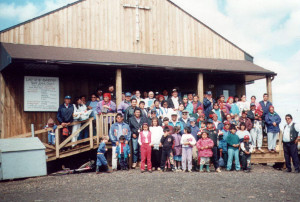
St. John’s Anglican Church, Kawawachikamach
The Naskapi settled inland, in the province of Quebec, and maintained ties with the Cree near Hudson’s Bay. The Mushuau Innu settled on the coast, in the province of Newfoundland and Labrador, and maintained ties with the Montagnais (Innu) in central Labrador and the Lower North Shore.
The Naskapi received their Christian teaching from Anglican clergy and has a church that is part of the Anglican diocese of Quebec. The Mushuau Innu received their Christian teaching from Roman Catholic clergy and their St. Anne Tshukuminu church is part of the Catholic diocese of Cornerbrook and Labrador.
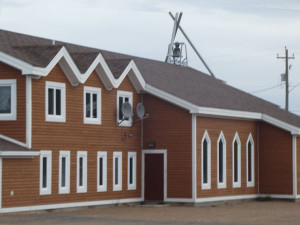
St. Anne Tshukuminu Catholic Church, Natuashish
The Naskapi read and write their language in a distinctive local variety of Cree syllabics, (like this: ᓇᔅᑲᐱ ᐃᔪᐤ ᐃᔨᒧᐅᓐ) very similar to the writing system used by the Northern dialect of East Cree. The Mushuau Innu read and write their language in a local variety of the emerging standard Innu spelling system (formerly referred to as Montagnais, like this: Tshishe-Manitu e ui kueshkatishit).
The Naskapi signed the Northeastern Quebec Agreement (NEQA) in the late 1970s, which enabled them to build their own new community of Kawawachikamach in 1983. The Mushuau Innu continued to struggled until the end of the century in difficult living conditions, and were finally provided with the new community of Natuashish in 2003.
Finally and significantly, the Naskapi have the New Testament in their own language, published in 2007, and a team of trained and experienced mother-tongue translators and Naskapi-speaking elementary school teachers, and ongoing work in language development and ongoing Old Testament translation. The Mushuau Innu do not (yet) have these things in their language.
Classroom Assistant Workshops
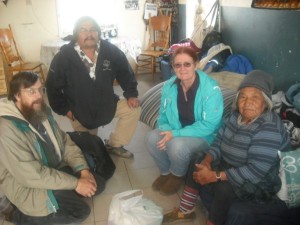
September 2011 visit to Natuashish
Over the past eight years, we have made several visits to the Mushuau Innu community, often bringing along some of the Naskapi language team to inspire and motivate Mushuau Innu speakers and community members. During these visits we and our Naskapi friends have met with educators, clergy, community leadership and resource persons, sharing our vision and encouragement for increased Mushuau Innu language development, and the central place that mother-tongue literacy and scripture translation can have for Natuashish as it has for Kawawachikamach.
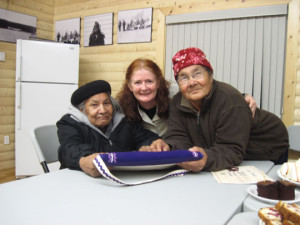
September 2013 visit to Natuashish
Norma Jean and I have been invited back each year for the past four years by the Innu School Board to conduct workshops for the Innu-speaking classroom assistants. There are no Mushuau Innu speakers yet who have the training, certification or qualifications to be classroom teachers, so the role of teacher in all the grade levels is filled by English-speaking professional teachers engaged from outside the community. But because many of the younger Innu children begin their schooling with little knowledge of English, the school hires classroom assistants to act as interpreters in the primary and elementary grades. These persons are uniquely positioned to teach the basics of literacy skills in their mother tongue, if they are provided with some guidance and access to Innu-language materials. Many Innu classroom assistants do not have any post-secondary training–their primary asset is that they are speakers of the children’s first language. Showing them some basic teaching skills can begin to equip them to lead the children into learning.
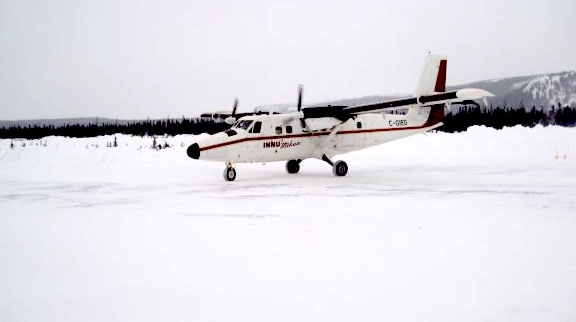 This Feburary 2015 we were back in the Natuashish community on the invitation of the school board to conduct another workshop for the classroom assistants. Extreme cold and other setbacks rendered the Mushuau Innu school building unusable when the heating system failed. Nevertheless, we were able to make arrangements to secure a meeting space in the Health Services building across the street from the school, and we facilitated daily workshops with a group of nearly a dozen Innu classroom assistants.
This Feburary 2015 we were back in the Natuashish community on the invitation of the school board to conduct another workshop for the classroom assistants. Extreme cold and other setbacks rendered the Mushuau Innu school building unusable when the heating system failed. Nevertheless, we were able to make arrangements to secure a meeting space in the Health Services building across the street from the school, and we facilitated daily workshops with a group of nearly a dozen Innu classroom assistants.

 Norma Jean covered strategies for teaching activities that could be conducted in Innu-aimun, following the model and curriculum of the English classroom teacher. The yearly cycle of Innu traditional cultural activities were proposed as a framework for teaching Innu language topics. She showed how using this topical format could cover many language competencies and generate learning activities for each grade level.
Norma Jean covered strategies for teaching activities that could be conducted in Innu-aimun, following the model and curriculum of the English classroom teacher. The yearly cycle of Innu traditional cultural activities were proposed as a framework for teaching Innu language topics. She showed how using this topical format could cover many language competencies and generate learning activities for each grade level.
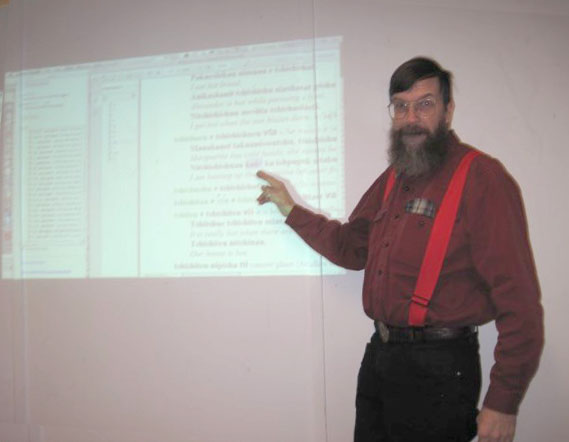 Bill prepared an abridged version of the Innu Dictionary adjusted to meet the needs of the Mushuau Innu speakers, and installed a digital version on the participants’ laptops. He also demonstrated simple techniques for accessing and using Innu language materials on their computers, and got them started on creating their own Mushuau Innu materials for classroom use.
Bill prepared an abridged version of the Innu Dictionary adjusted to meet the needs of the Mushuau Innu speakers, and installed a digital version on the participants’ laptops. He also demonstrated simple techniques for accessing and using Innu language materials on their computers, and got them started on creating their own Mushuau Innu materials for classroom use.
We were both careful to be sensitive and listen to the participants each day and adjusted our workshop topics so that we would meet the particular needs that the Innu classroom assistants expressed to us.
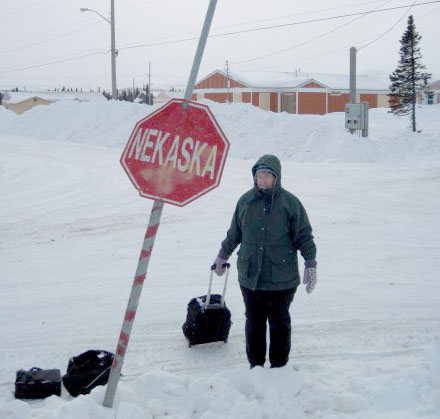 When the workshop was over and in the evenings we were able to visit in some of the homes, meet with leaders and caregivers, visit elders and attend church services.
When the workshop was over and in the evenings we were able to visit in some of the homes, meet with leaders and caregivers, visit elders and attend church services.
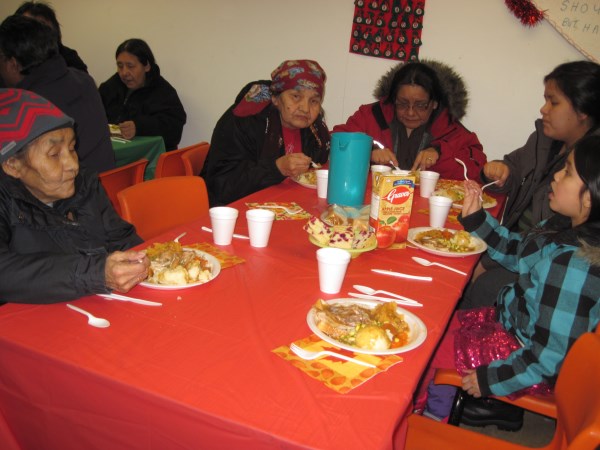
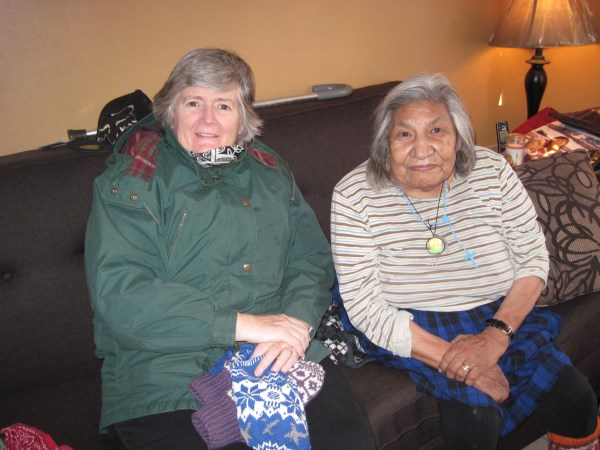 Once again, we are struck with the deep spiritual and social needs in this community, and while we are grateful for the welcome we received to conduct this workshop, we are still convinced that developing their capacity to have access to God’s word in their own language is essential so that they can continue to take the needed steps toward healing the hurts in their community. A simple Internet search on “Davis Inlet” will turn up a litany of many of the challenges this community has faced over the years, but this post is not the place for that. This post contains hope that the Mushuau Innu people themselves can begin to find their healing in a deeper knowledge of their Creator as expressed through the medium of their own language, which is their identity and legacy.
Once again, we are struck with the deep spiritual and social needs in this community, and while we are grateful for the welcome we received to conduct this workshop, we are still convinced that developing their capacity to have access to God’s word in their own language is essential so that they can continue to take the needed steps toward healing the hurts in their community. A simple Internet search on “Davis Inlet” will turn up a litany of many of the challenges this community has faced over the years, but this post is not the place for that. This post contains hope that the Mushuau Innu people themselves can begin to find their healing in a deeper knowledge of their Creator as expressed through the medium of their own language, which is their identity and legacy.
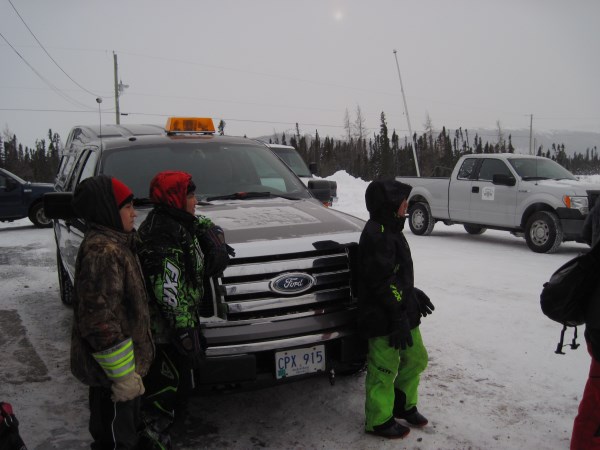
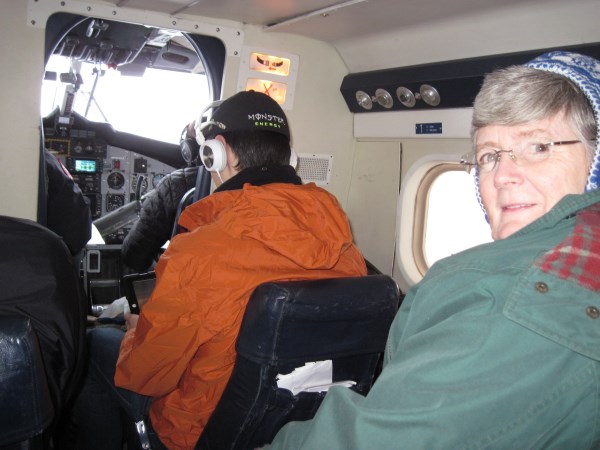 We are so grateful for the privilege of being invited to join in this process at Natuashish. Please remember to pray for the classroom assistants, the school and the Innu community leaders and elders in the coming weeks and months as they move forward. Thank you so much for your prayers for us as we traveled all those miles and days to spend this time with them.
We are so grateful for the privilege of being invited to join in this process at Natuashish. Please remember to pray for the classroom assistants, the school and the Innu community leaders and elders in the coming weeks and months as they move forward. Thank you so much for your prayers for us as we traveled all those miles and days to spend this time with them.
Pray too that the Lord of the Harvest will send workers who can facilitate a Mushuau Innu language project full-time for the long-term, just as the Naskapi have had.
We are happy, but once again pretty tired! Pray for us for a refreshing week back in British Columbia.
This is the fourth of a series of messages describing each of the “priorities” identified in the First Nations Bible Translation Capacity-Building Initiative that began with the story of the Mason Cree Bible, the (Cuthand) Plains Cree Translation, and the Kingfisher Lake Oji-Cree Translation project . If you missed those, you can still read about them here:
Mason Cree Bible
(Cuthand) Plains Cree Translation
Kingfisher Lake Oji-Cree Translation
We encourage you to click on those links and review the stories, the Initiative and our vision and involvement in this work.
The (Cuthand) Plains Cree Translation, the Mason Cree Bible, the Oji-Cree Translation and the Mushuau Innu projects are just four of the “priorities” identified by the First Nations Bible Translation Capacity-Building Initiative. Keep watching for other posts right here that will feature the other “priorities”, including the following components of our vision:
- Mother-Tongue Translator (MTT) workshops
- Naskapi Old Testament Translation project
Serving with you, Bill and Norma Jean
Links to donate for our financial support:
in Canada: http://www.wycliffe.ca/m?Jancewicz
in USA: https://www.wycliffe.org/partner/Jancewicz
